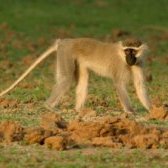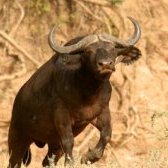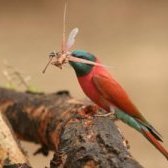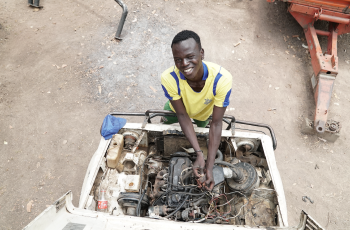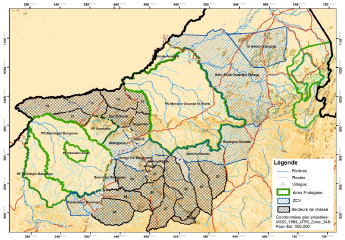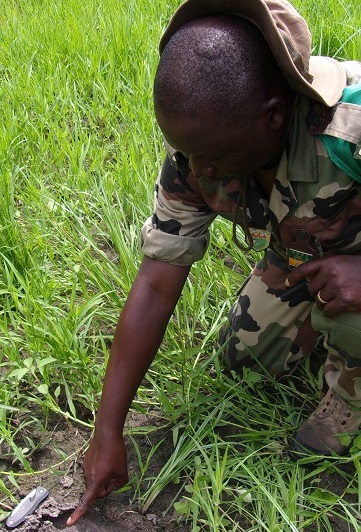
Poaching
and overexploitation of wildlife

In recent decades, the armed conflicts that have hit the sub region, especially the war in Sudan, have fostered the proliferation of weapons of war. Poachers are equipped with automatic weapons and equipment that often exceed in quantity and efficiency the equipment provided to the staff in charge of managing protected areas.
The intensification of poaching is a direct effect of this trend and the wildlife of north-eastern CAR are paying a heavy price. Poaching for ivory but also for bushmeat has emptied the northern zone of its wildlife. ECOFAUNE works to sensitize all the partners and actors to restore control over the protected territory and to secure the space, in the perspective of a progressive repopulation of this territory by the main wildlife species of Northern CAR.

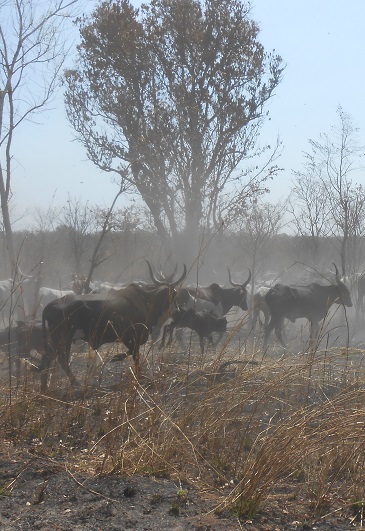
Transhumance
and overexploitation of sites

North CAR has seen cattle herding grow in recent decades. This new occupation of space creates conflicts between transhumant herders and farmers but also between wildlife and livestock for access to pastures and water points. The world of pastoralism is heterogeneous and complex, shared between local herders and transhumant herders, who do not have the same goals and interests. Moreover, this sector in North CAR is highly penalized by the State’s lack of capacity to control and manage it, and dominated by informal taxation generating no profit for the region. It is important to better understand and grasp users’ practices and needs in order to re-establish proper management of this sector in a way that would complement the management of natural resources. Currently, transhumance is a burden for CAR, which draws no benefit from it.
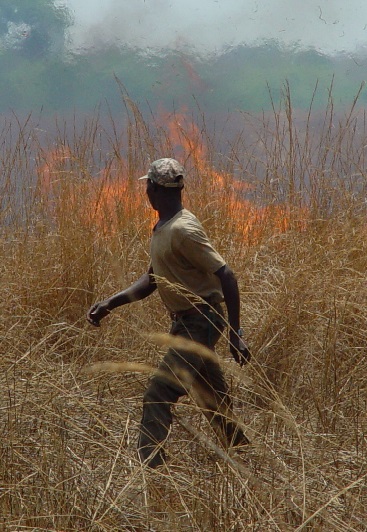
Insecurity
and anarchic use of resources

The insecurity created by the armed conflicts in the area during the last decades has doubled in the North zone, due to an absence of the State services. This failed state situation encourages anarchic use of park resources with severe negative impacts on wildlife and natural habitats.
Artisanal fishing (using methods that degrade the environment and are dangerous for public health), artisanal extraction of diamonds and gold (using methods impacting natural habitats), transhumance, (leading to poisoning of rivers used as holding areas for the processing of livestock), overexploitation of game, are some activities that it is important to control with effective law enforcement. Also an oil exploration license was granted in 2011 to a Chinese company. If the exploration proves conclusive, the impact of the oil extraction will be an additional pressure on the natural environment which will also have to be managed. As part of the Ecofaune Project, a Spatial Development Master Plan (SDMP) is being finalized. Prepared in a participatory manner involving all actors and stakeholders of the Bamingui-Bangoran Prefecture, the SDMP is based on the concept of a systemic approach to the use of spaces. This strategic document, once formally adopted, will guide the rational use of resources in Northern CAR.



